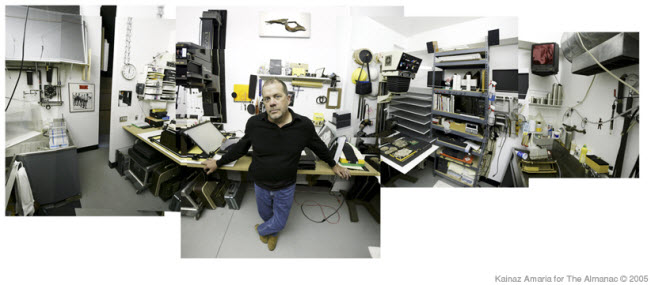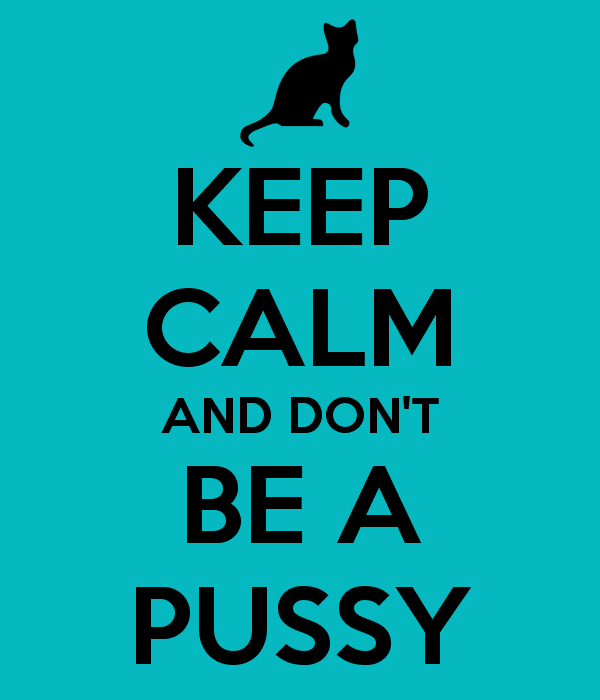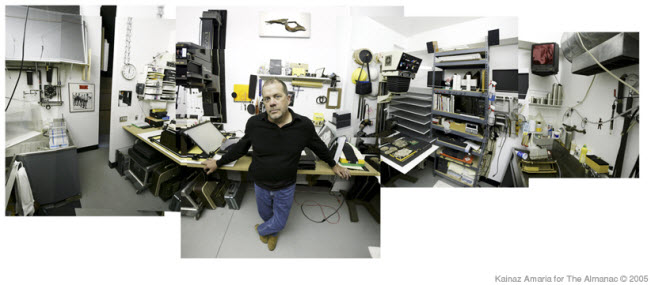
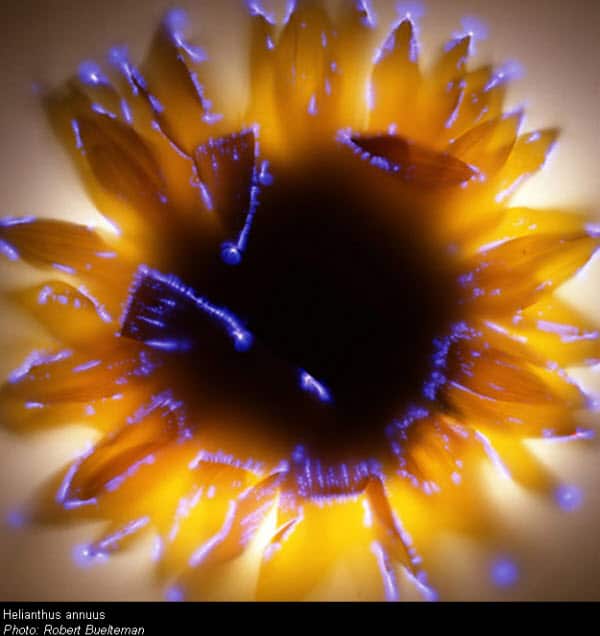
Do you know who Robert Buelteman is? A while ago I read an article in Wired about Robert (the article is where I got the images), and I was so intrigued by his art and process that I had to contact him myself and tell him how great I found his work.
Robert is an artist of the utmost depth and skill. He’s an artist working with light, electricity, nature, and an idea of using those three things to expose images that are hidden from our view by design. Robert Buelteman creates images of plant life, but not with a brush and pigment, a camera, or a lens. His images are exposed in total darkness with high voltage electricity.
Robert made an interesting comment in an article in Asian magazine “Photoworld” – he said that his art has more in common “with Chinese Brush Painting and improvisational jazz than it does with the current practices of photography.”
Robert’s process is almost as beautiful as the work that it produces. In order to get the effect Robert creates, he has to “thin out” the subjects (the plant life) by scalpeling them down very thin to get the aesthetic feeling that he wants in the particular image. They are then placed on a piece of color transparency film that’s covered with a diffusion filter (could be rice paper, ground glass, acetate, Plexi) laid on top of the subject to scatter light. The “easel” onto which Robert composes his image is a piece of sheet metal between two pieces of Plexiglas, all of which is submerged in liquid silicone. Oh, yes – and 40,000 volts of electricity that are hooked up through the plant subject, making electricity jump through the plant life and onto the sheet metal. All of this is captured on the color transparency film. Robert then “paints” the plant subject with a fiber optic lead no larger than a human hair using light onto the film.
It’s a trial-and-error process – Robert might do 150+ “takes” of each photo, trying to accurately catch the auras and make it looks how it looks in Robert’s mind’s eye.
The interesting thing to me about the process is the point where the gas surrounding the plant subject gets ionized. At this moment, the gas is turned into a plasma corona of sorts, and the work takes on an almost Kirlian photography in some cases. Robert’s process is different than the Kirlian style of photography (which is all blue); what I find very interesting is how the life of the plant is almost released and captured on film. It’s like looking into the soul of the plant.

I emailed Robert a little while ago, hoping to find out about the way he feels about the work, and some insight on him as an artist working with light. He was gracious enough to answer some emailed questions – I’ve posted the exchange below:
JimOnLight: How did you arrive at the conclusion to take such an interesting look into plant life?
Robert Buelteman: I’ve been photographing nature for over 30 years as a black-and-white landscape photographer, and even though I had been very successful with my work, I became frustrated by the ordinariness of it all. Seemed everything that inspired me had been shot by so many others so many times that my art form had become an exercise in futility. No one SAW what I did – I desperately need a new set of eyes, a new way of apprehending life itself.
JOL: Does your muse for this work come from a particular fascination or interest in your life?
RB: I am interested in assisting people to beyond the strait jacket that life puts us in. Day in, day out, life has it’s way with us and we tend to become more dead, more asleep every day. My work is a wholesale rejection of the way of life that says “Nothing to see here, move along” – life is brilliant, life is precious, life is a privilege, life is a miracle. Those are the qualities I work to imbue in every photograph I make.
JOL: Your works are amazing in many ways, but one of my favorites is the form of the work. It has a slight flavor of the Kirlian Photograhy style mixed in with something that must be specifically Buelteman – can you describe your process, both artistically and physically?
RB: If these were straight Kirlian images there would be no color other than blue. I meticulously hand paint the subjects using a fiber optic probe the size of a human hair.
JOL: When you look closely at one of your works, take “Avena Futua” in the Through the Green Fuse Collection for example, the observer notices a very ethereal feeling connected to the leaves and the aura of electricity. How much of your work do you see in your “mind’s eye,” per se, and how much comes from experimentation with the flora and the electricity?
RB: You have selected the only pure Kirlian image in the entire body of work! And yes, it was a bit of a surprise when I saw that the intense discharge had super heated the leave causing it to turn red. The experience of making these images is very distinct from landscape photography – there is no sense of control – it is replaced by a serendipitous dance between myself, the subject, the vision I have for it, and the vagaries of the process.
JOL: If you had any bit of advice for young artists and designers working with light, could you share a small bit?
RB: I try not to give advice as I don’t think it is of much value, and it all sounds so trite:
listen to your hear
think for yourself
follow your dreams
believe in yourself or no one else will
damn the torpedos, full speed ahead
See what I mean? Now, if you can be those qualities instead of merely speaking them, there’s some real value in that.
I am so very grateful to get to connect with this man! Check out a few more of his images (thank you, Wired) and please check out Robert Buelteman’s studio site with more of his lovely work. Robert has a great new book out of his work in this series. The book is called “Signs of Life,” and is available from Light Language Publishing. Check it out – free shipping through the end of the year!
Robert sent me a new work, and I have posted it directly below. The work is called “Rainbow Chard,” as it is the Buelteman process on a piece of rainbow chard, which is almost as delicious with garlic as it is with light and electricity:
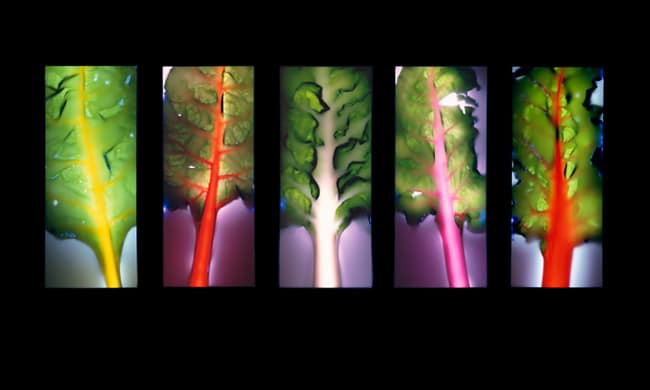


Thank you so much, Robert! I think your work is spellbinding.
